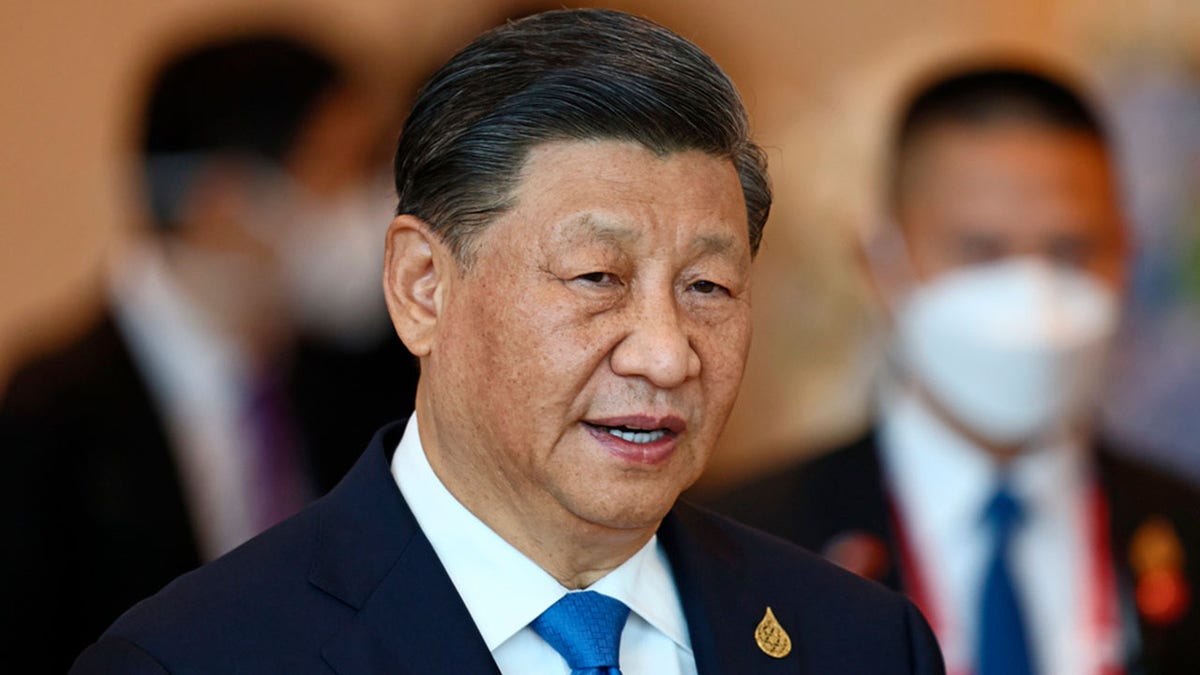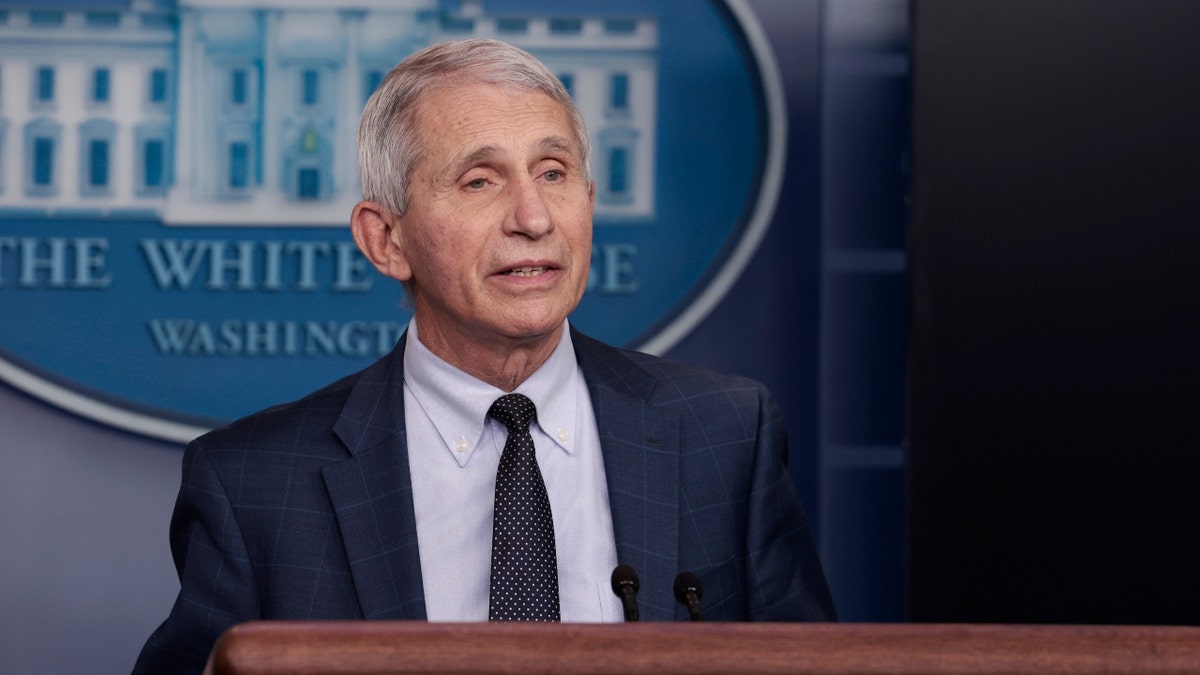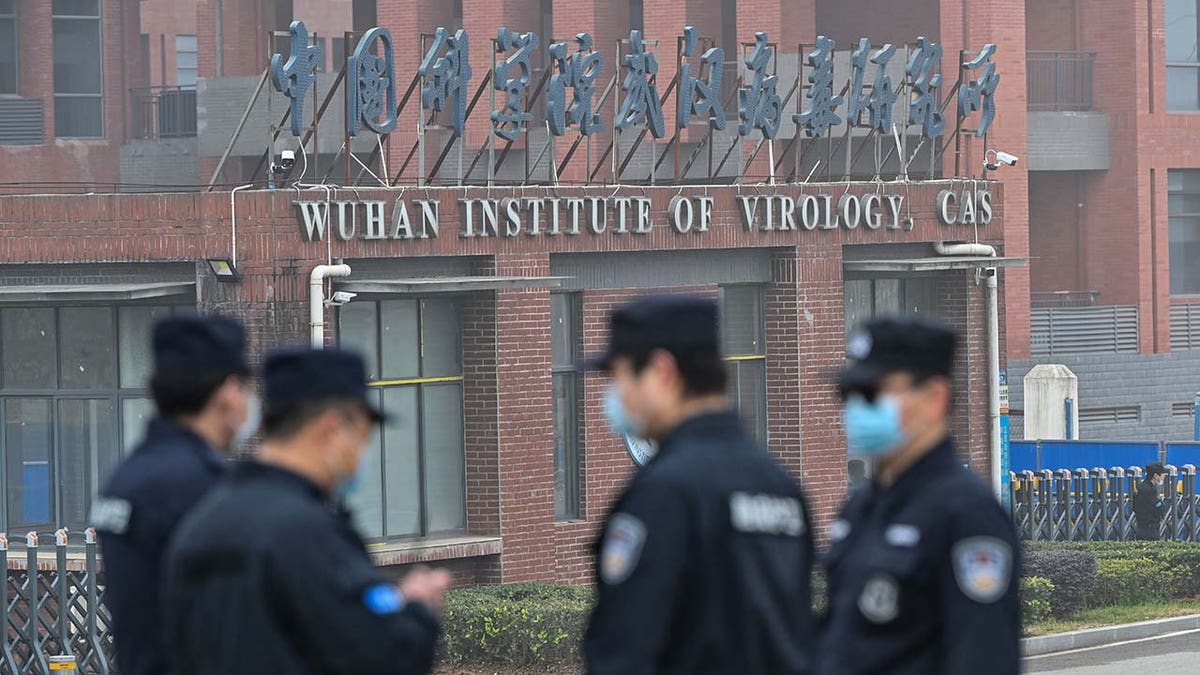Dr. Fauci accused of downplaying the 'lab leak' theory
Fox News senior congressional correspondent Chad Pergram reports on accusations against Dr. Anthony Fauci by the House Coronavirus Subcommittee and other scientists.
House Republicans this week released messages sent by scientists during the coronavirus pandemic that show the decision to downplay the "lab leak" origin theory was made for political reasons.
The Republican-led House Select Subcommittee on the Coronavirus Pandemic released a report on Tuesday outlining what it says are examples showing that top scientists rejected the theory that the coronavirus came from a lab in China because they were worried about the political impact of that assessment. GOP lawmakers charge those messages were sent in concert with Dr. Anthony Fauci’s National Institutes of Health (NIH).
"Given the s--- show that would happen if anyone serious accused the Chinese of even accidental release, my feeling is we should say that given there is no evidence of a specifically engineered virus, we cannot possibly distinguish between natural evolution and escape so we are content with ascribing it to natural process," Dr. Andrew Rambaut wrote in a Slack message to Dr. Kristian Andersen, Dr. Edward Holmes and Dr. Robert Garry, according to the report.
Rambaut, along with Andersen, Holmes and Garry, authored "The Proximal Origin of SARS-CoV-2" on the website Virological in February 2020. That report said the lab leak theory was not "plausible," and subcommittee members say the paper was written at the behest of Fauci to "downplay the lab leak hypothesis and call those who believe it may be true conspiracy theorists."
FORMER INTELLIGENCE CHIEF TO SAY A LAB LEAK IS THE 'ONLY EXPLANATION' FOR COVID

Chinese President Xi Jinping arrives to attend the APEC Economic Leaders Meeting during the Asia-Pacific Economic Cooperation in Bangkok on Nov. 19, 2022. (Jack Taylor/Pool Photo via AP)
Andersen responded to Rambaut by saying, "Yup, I totally agree that that’s a very reasonable conclusion. Although I hate when politics is injected into science — but it's impossible not to, especially given the circumstances."
The report provides several other comments from scientists, including Dr. Ron Fouchier, who said that furthering the debate about the lab leak theory "would unnecessarily distract top researchers from their active duties and do unnecessary harm to science in general and science in China in particular."
"Since Proximal Origin was published, it has been accessed 5.84 million times," the House report concluded. "Further, it has garnered the third most attention of any paper of a similar age across all journals and the second most attention of any paper of a similar age in Nature Medicine.
"Finally, it has received the fifth most attention of any paper ever tracked. This is one of the single most impactful and influential scientific papers in history, and it expressed conclusions that were not based on sound science nor in fact, but instead on assumptions. The question is why."

Dr. Anthony Fauci has insisted that he believes the most likely scenario is that the coronavirus came from nature. (Anna Moneymaker/Getty Images)
The "lab leak" theory suggesting COVID came from a lab at the Wuhan Institute of Virology in Wuhan, China, was widely dismissed as "misinformation" by Democrats, major news outlets, scientists and social media companies in the early stages of the pandemic. Since then, however, it has been deemed the most likely scenario by several agencies within the Biden administration.
FBI Director Christopher Wray told Fox News' Bret Baier in March that COVID-19 "most likely" came from a Chinese lab, and Wray repeated that assessment in a House hearing on Wednesday.
Fauci has insisted that he believes the most likely scenario is that the coronavirus came from nature.
"All of the intelligence groups agree that this was not an engineered virus," Fauci said in April. "And if it’s not an engineered virus, what actually leaked from the lab? If it wasn’t an engineered virus, somebody went out into the field, got infected, came back to the lab and then spread it out to other people. That ain’t a lab leak, strictly speaking. That’s a natural occurrence."

Security personnel stand guard outside the Wuhan Institute of Virology in Wuhan, China. (Hector Retamal/ AFP)
Testifying before the House committee on Tuesday, Andersen rejected the notion that he and his fellow scientists were trying to kill the lab leak theory.
"I think it’s important that we take a step back and focus on what’s possible versus what is probable," Andersen told the committee. "We concluded that the virus very likely emerged as the result of a zoonosis, that is, a spillover from an animal host. This remains the only scientifically supported theory for how the virus emerged. If convincing new evidence were to be discovered, suggesting otherwise, we would, of course, revise our conclusions. This is science."
Anderson and Garry both denied accusations that the Proximal Origin paper was influenced or directed by Fauci or NIH's Dr. Francis Collins.
CLICK HERE TO GET THE FOX NEWS APP
A press release from the subcommittee said, "Chairman Wenstrup argues that the drafting, coordination, and publication of the infamous Proximal Origin paper was not only antithetical to science, but that it also wrongly downplayed the lab-leak hypothesis."
"Why try to avoid biosafety discussions when people are dying? Science should be clear, even when politics are not," the subcommittee said.














































